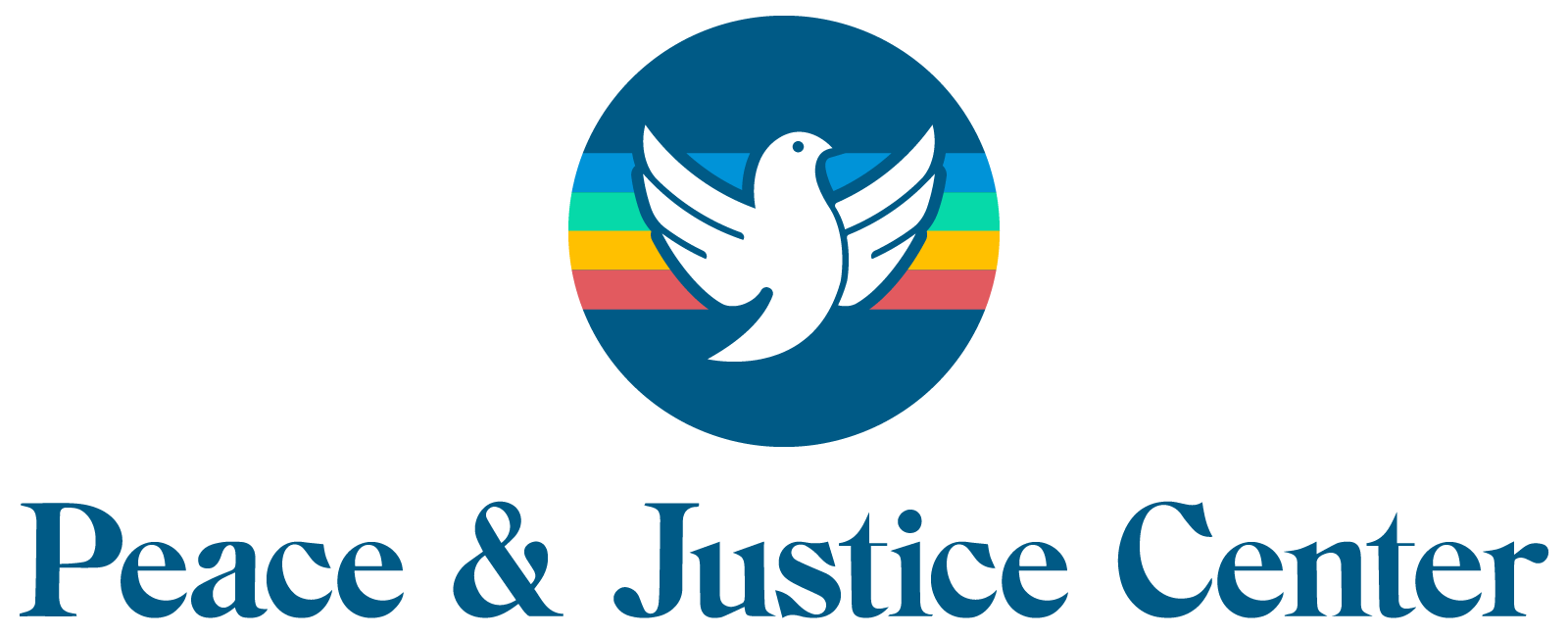For over 40 years the Peace & Justice Center has sought to unite communities through activism and education. As time progressed the organization progressed, taking its initial focus of nuclear proliferation, and refocusing on various social justice campaigns over the years. With each new leader came a new focus for the organization always keeping in mind the goal of a peaceful and just world for everyone. Over the last decade the PJC has been working hard to examine the ways in which we are still upholding an oppressive culture within our own walls. With the leadership of Rachel Siegel, the organization has worked slowly and intentionally to work from an anti-racist lens, which has led to several tangible changes including:
- the creation of a Racial Justice Advisory Committee, a cohort of BIPOC individuals who are paid for their opinions of the work and direction of the PJC
- a commitment to maintaining a board of directors that is at least 50% BIPOC
- financial compensation when we ask anyone for participation in an event, conversation, or coalition, if part of their qualification is a result of their marginalized identity (this has been true for trans, disabled, and BIPOC people but mostly BIPOC); including payment for mileage, wage compensation, childcare, and time
- no longer participating with efforts, events, or coalitions that aren’t also offering financial compensation for the same
These steps towards real equity in a non-profit structure has opened the doors to so many other changes the organization is seeking to make.
While the Peace & Justice Center continues to dismantle the systems of patriarchy and racism internally, during this time of deep transition, as a next step we hope to shift our focus from the education of white Vermonters to the celebration of BIPOC joys and healing. While we see the necessity of being such a resource to the community, we realize that to be a truly anti-racist organization we must be prioritizing the needs of the BIPOC communities we aim to serve.
The organization has committed to the internal practice of affinity spaces, both to allow for our colleagues of color to rest and heal, and for our white colleagues to explore and unpack their role in our community. Through this practice, we hope to offer support, development, and direction to the greater PJC community to begin implementing this approach in their respective organizations so that commitment to disrupting racism can begin in earnest.
We hope that our members and partners will join us in celebrating this commitment and the promise that this new direction offers. As we create spaces for folks to push themselves to their growing edge, brave spaces to find vulnerability and courage in, and safe spaces for healing and affirmation, we hope to emerge on the other side with a vision of more authentic multiracial spaces that amplify a shared realization of collective liberation.
It is our sincere hope that the BIPOC community in Vermont will see this transition as one that seeks to truly allow the PJC to become a resource and space for healing that we all need. We acknowledge that we have not consistently been that space for BIPOC Vermonters and will continue to work to repair the trust that has been broken here. The BIPOC staff, board and Racial Justice Advisory Committee members are excited about this new direction and hope that you will continue to support us through what has and will inevitably be an emotional journey.
-Aris Garcia (She, Her) & Arima Minard (She, her)
